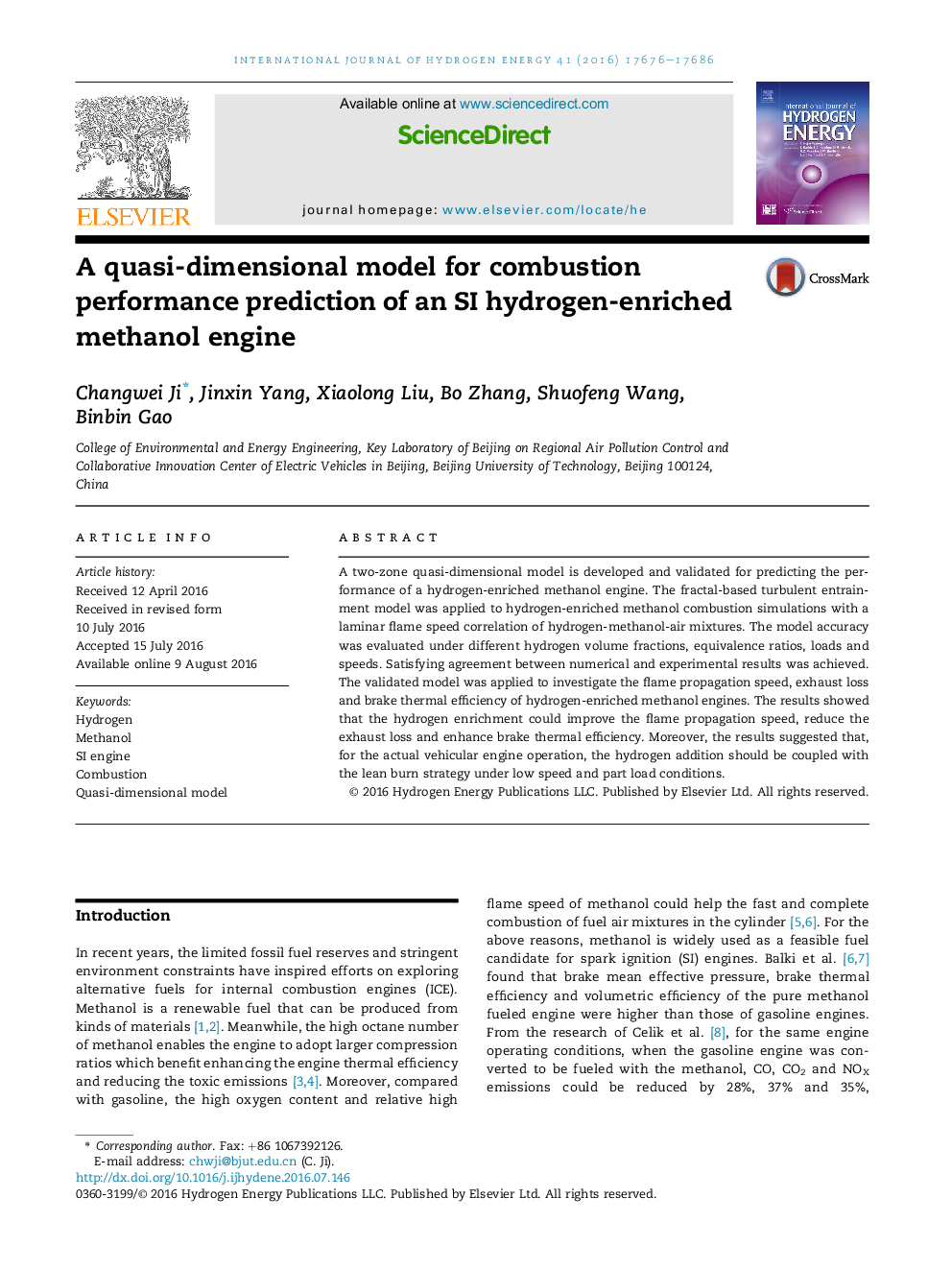| Article ID | Journal | Published Year | Pages | File Type |
|---|---|---|---|---|
| 5148250 | International Journal of Hydrogen Energy | 2016 | 11 Pages |
Abstract
A two-zone quasi-dimensional model is developed and validated for predicting the performance of a hydrogen-enriched methanol engine. The fractal-based turbulent entrainment model was applied to hydrogen-enriched methanol combustion simulations with a laminar flame speed correlation of hydrogen-methanol-air mixtures. The model accuracy was evaluated under different hydrogen volume fractions, equivalence ratios, loads and speeds. Satisfying agreement between numerical and experimental results was achieved. The validated model was applied to investigate the flame propagation speed, exhaust loss and brake thermal efficiency of hydrogen-enriched methanol engines. The results showed that the hydrogen enrichment could improve the flame propagation speed, reduce the exhaust loss and enhance brake thermal efficiency. Moreover, the results suggested that, for the actual vehicular engine operation, the hydrogen addition should be coupled with the lean burn strategy under low speed and part load conditions.
Related Topics
Physical Sciences and Engineering
Chemistry
Electrochemistry
Authors
Changwei Ji, Jinxin Yang, Xiaolong Liu, Bo Zhang, Shuofeng Wang, Binbin Gao,
